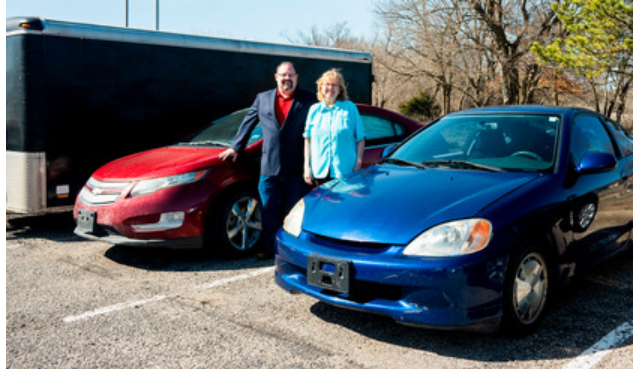Pittsburgh State University (PSU) is seeking the final funding for a new $20 million facility to expand the university’s automotive program.
The building will provide laboratory space for students to train on heavy equipment, including diesel engines, hydraulic systems, powertrains, electrical and electronic systems, and hybrid and electric vehicles.
The expansion will allow the university to double the current enrollment of 250 students, a PSU press release says.
Phase one includes constructing a 20,200-square-foot building that will establish nine hybrid EV (HEV) laboratory bays and create 10 adaptable heavy equipment bays that can service diesel heavy engines, transmissions, hydraulic systems, and machines.
The first phase is funded by an estimated $10 million in private gifts, the release says.
Phase two calls for another 10,000 square feet for 16 heavy equipment bays and will be funded with an estimated $5 million in private gifts.
PSU continues to seek an additional $5 million in state and federal funding for the project.
Professor Tim Dell said the new building will move the HEV program out of the two-year automotive service lab, allowing more space for the currently cramped collision program.
He said the spaces are also used by the Kansas Center for Career Technical Education, which offers instruction to Kansas teachers and industry personnel.
“We have faculty with a great deal of expertise, state-of-the-art equipment, and industry support. Now we just need space,” Dell said. “When prospective students walk into the new facility, it will make it an easy decision for them to choose Pitt State.”
Architectural plans will be finalized in 2026, with construction set to begin that year and occupancy planned for the fall of 2027. The facility will be built north of the Crossland Technology Center, across the parking lot from the wing of the center that houses current Automotive Technology labs.
PSU also recently announced the donation of two EVs to their program.
The wife of longtime professor, Jim Triplett, donated her husband’s 2003 Honda Insight to the program following his death.
“Triplett dedicated many years of his life to sustainability and conservation measures and championed the installation of the first electric vehicle charging stations on campus and downtown,” a PSU release says. “His wife, Shirley, also a longtime professor, knew donating the vehicle would provide students with hands-on experiences.”
Another supporter of the program, Kelly Burgess, recently donated his son’s 2011 Chevy Volt to the program after it was involved in a collision.

“What makes this car unique is that it is a plug-in hybrid electric vehicle,” Burgess says in the release.”It has an engine and a battery system, so it can be plugged in to charge and drive short distances, and then gas kicks in for long distances. It was the first General Motors plug-in hybrid vehicle that was commercially available.”
In recent years, Burgess donated and installed a charging station in downtown Pittsburg and Triplett helped him secure a location at the Colonial Fox Theatre.
“He was way ahead of his time,” Burgess said. “His vehicle was the first generation of hybrid vehicle to come to the U.S. Both of our cars represent a foreshadowing of what the industry was moving toward. I see this as a ‘lemons to lemonade’ event. We’re transforming these cars into something very positive for students at Pitt State.”
Professor Trent Lindbloom said the vehicles will be great teaching aids.
“These generous donations mean a lot to our learning process. It’s one thing to talk about it in the classroom, but it’s another thing to have the components and vehicles themselves,” said Lindbloom, who oversees the HEV program.
IMAGES
Feature photo shows the design of the planned PSU Automotive building/PSU
Kelly Burgess and Shirley Triplett/PSU
Share This:
